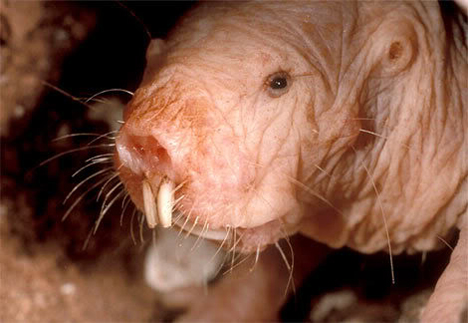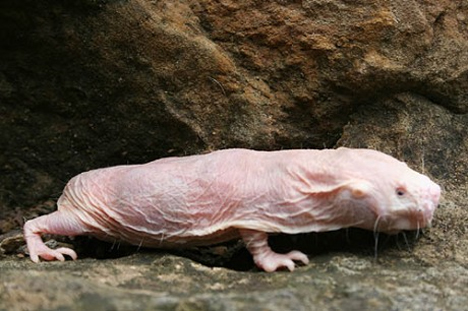
One of the ugliest animals on Earth may soon give us some insight into preventing cancer in humans. The naked mole rat enjoys an exceptionally long lifespan, up to 30 years, which is unusual among small rodents. Its long life allows it plenty of time to develop cancer, yet there has never been a single recorded case of cancer in the species. Scientists studying the mole rat’s super cancer resistance found that, even when they intentionally mutate cells to induce a tumor, no tumor forms. They’ve isolated a gene called p16 that allows the cells to resist out-of-control growth.

Vera Gorbunova and Andrei Seluanov, professors of biology at the University of Rochester, spent three years studying different types of rodents to identify how each deals with cancer. During the course of their research, they were surprised by a few of their findings. First, they found that telomerase, an enzyme that estends the life of cells but increases the rate of cancer, is very active in smaller rodents but not in larger rodents. It didn’t seem to make sense, since small rodents with long lifespans often showed low rates of cancer. The researchers figured that these rodents must have evolved some sort of anticancer mechanism previously unseen. And when they started studying naked mole rats and isolated p16, they had their answer. They are currently planning to extend their research to see if the gene’s properties are useful in human cancer research.

